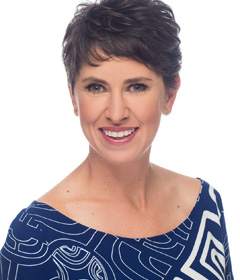Women in Security: Christine Lanning took to technology early Suggestions for success: 'Join technical organizations, go to the conferences, join PSA Security, read the trade publications'

By Martha Entwistle
Updated Wed November 5, 2014
 HONOLULU—Christine Lanning, president of Integrated Security Technologies, a systems integration firm based here, always expected to have a technology-centric career. As a child, she soldered LED lights onto circuit boards for fun, she was the first kid on the block to have a home computer, and the only third-grader who turned in school reports printed out on a dot matrix printer.
HONOLULU—Christine Lanning, president of Integrated Security Technologies, a systems integration firm based here, always expected to have a technology-centric career. As a child, she soldered LED lights onto circuit boards for fun, she was the first kid on the block to have a home computer, and the only third-grader who turned in school reports printed out on a dot matrix printer.
“I think it was an Apple 2E. My dad and I played around with programming and making cool graphics,” Lanning told Security Systems News.
In high school she was the sole female in an elective electronics class. She'd had a lifelong interest in technology, but the security industry was not on her radar until graduate school.
Lanning took a job at an alarm company to earn money while she was studying for a master's degree in information technology in the mid-1990s.
“I think it was the year after Windows 95 came out and you started to see the convergence between software and hardware in security,” she said.
Suddenly, the dull world of security started to look more interesting.
By 1998, she left that company to found IST, a PSA Security company, with her husband, Andrew Lanning.
What's her advice for women looking to advance in the security industry? “The same advice would apply to woman in any business: Keep abreast of technology and know what's going on in the industry as a whole,” she said. “Join technical organizations, go to the conferences, join PSA Security, read the trade publications.”
It's so easy to get stuck in the day-to-day of operating or working in a business; it's important to get out of the office, she said.
“Find a mentor, take them out to lunch and sit down and talk,” Lanning said.
In recent years, Lanning has found a mentor, met a group of super-smart people by joining some professional organizations that are focused on cyber security as well as physical security. She looks forward to these organizations' events and the chance to have “really elevated conversations about security.”
Asked if she believes gender diversity is important in the security industry, Lanning says yes.
“Women bring a different perspective to the industry,” she said.
Women tend to be more collaborative and willing to share ideas, she said. That's not something Lanning sees occurring naturally in a male-dominated industry such as physical security.
This opinion comes from personal experience at her company, where it took her a long time to train IST technicians to share knowledge.
There was a sense that asking for help or sharing information with coworkers made them less valuable as employees, Lanning explained. “I had to beat into them not to call technical support every time you have a problem or a question, [but rather] to call one of the other technicians. It took a long time to get them to do that.”
Today, however, collaboration is part of IST's culture.
Comments